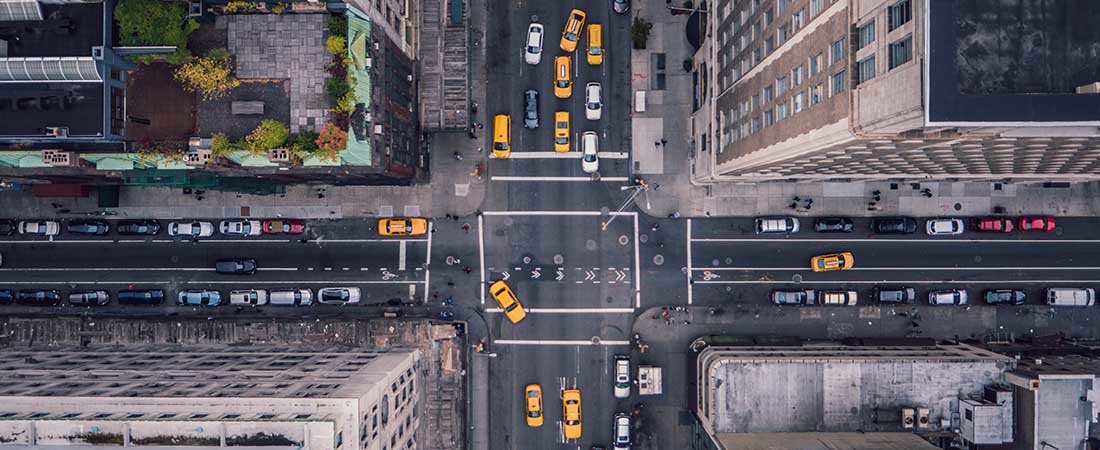International relations has often been seen through the narrow lens of the actions of state leaders and representatives. This undoubtedly represents modern diplomacy to some extent, but to understand international relations only through formal summits and handshakes is to fail to truly understand how diplomacy operates in the modern world. Global organisations, non-governmental groups and international businesses are all playing a large part in how nations interact, and so too are cities.
International relations in the era of Trump
In June 2017, US President Donald Trump shook the world by announcing that the United States would be pulling out of the Paris climate agreement, one of the most ambitious international efforts to address global warming. In response, more than 380 mayors from across the US, representing around 68 million Americans, vowed to uphold the goals of the Paris agreement by forming their own Chicago Charter.
And when the US declined to establish a pavilion at the United Nations Climate Change Conference last year, cities, states and companies joined together to establish a renegade presence that dwarfed the official delegation.
At a time when Congressional politics is grinding to a halt or going backwards, locally-elected US officials are often leading the charge for innovative and cooperative legislation. In response to the Trump Administration’s zero-tolerance immigration policy, a bipartisan group of 16 mayors from across the country took a bus to the Mexican border to bring awareness to the family separations taking place. Local officials have also been pushing back against Trump by declaring their jurisdictions ‘sanctuary cities’ and passing resolutions condemning the President’s policies.
Two seemingly paradoxical factors may be at play in explaining why local officials are coming together against Trump. On the one hand, unlike their counterparts on Capitol Hill, local leaders’ positions and political advancement do not rely on keeping the presidential administration happy, and they can therefore more freely criticise controversial measures. On the other hand, local officials with lofty ambitions of Washington (Presidents Cleveland, Coolidge and Johnson were all former mayors), may find that attacking Trump is an easy way of getting coverage and support.
Cities are where the future happens first
This diplomatic upheaval is not just limited to America. Cities are now more connected than ever before, and it is getting almost impossible for local leaders to avoid forming international connections. They can more easily forge cross-border links in order to take part in, and shape, the international agenda. This goes beyond individuals using their local mandate to address an international audience. Formal and institutionalised structures are being created to connect major cities from across the world, regularly bypassing national governments.
The greatest issue that our international community will need to face over the next 50 years is climate change. Cities are undoubtedly a huge part of the climate problem. But they’re also where innovative, drastic and at times risky policies can be championed, and solutions found.
Bogotá is the first city in Colombia to turn waste into electricity, Taoyuan City is utilising new sources of water to secure its drinking supply and agricultural productivity, and Chicago is revitalising school lots to capture stormwater and reduce the risk of flooding.
City diplomacy
National governments can no longer dictate or control their regional counterparts. When Burkina Faso severed its diplomatic ties with Taiwan in May this year, the Mayor of Taipei said he was committed to maintaining the city’s sisterhood with Ouagadougou.
There are two main factors which seem to impact the level of media interest city leaders enjoy. Firstly, they get more coverage when dissenting from the official line put forward by their respective national governments. Newspapers have little reason to include a statement by a Councillor or Mayor when a Prime Ministerial or Presidential address will make the same point. But when a city leader is standing up against the actions of a government, such as Parisian Mayor Anne Hidalgo’s criticisms of the French Cabinet, that creates a conflict worth writing about.
Secondly, when cities come together to form partnerships and organisations, such as the 90 cities collectively working as the ‘C40’ to fight climate change, this increases the scale of the policies and declarations, transcending regional and national borders.
Urban issues are increasingly dominating the international agenda, and now cities are too. While national leaders flip between relentless gridlock and often meaningless grand declarations, cities are catalysts for genuine change that are championing innovation and co-operative diplomacy. It’s time for international organisations to think global, and act local.

